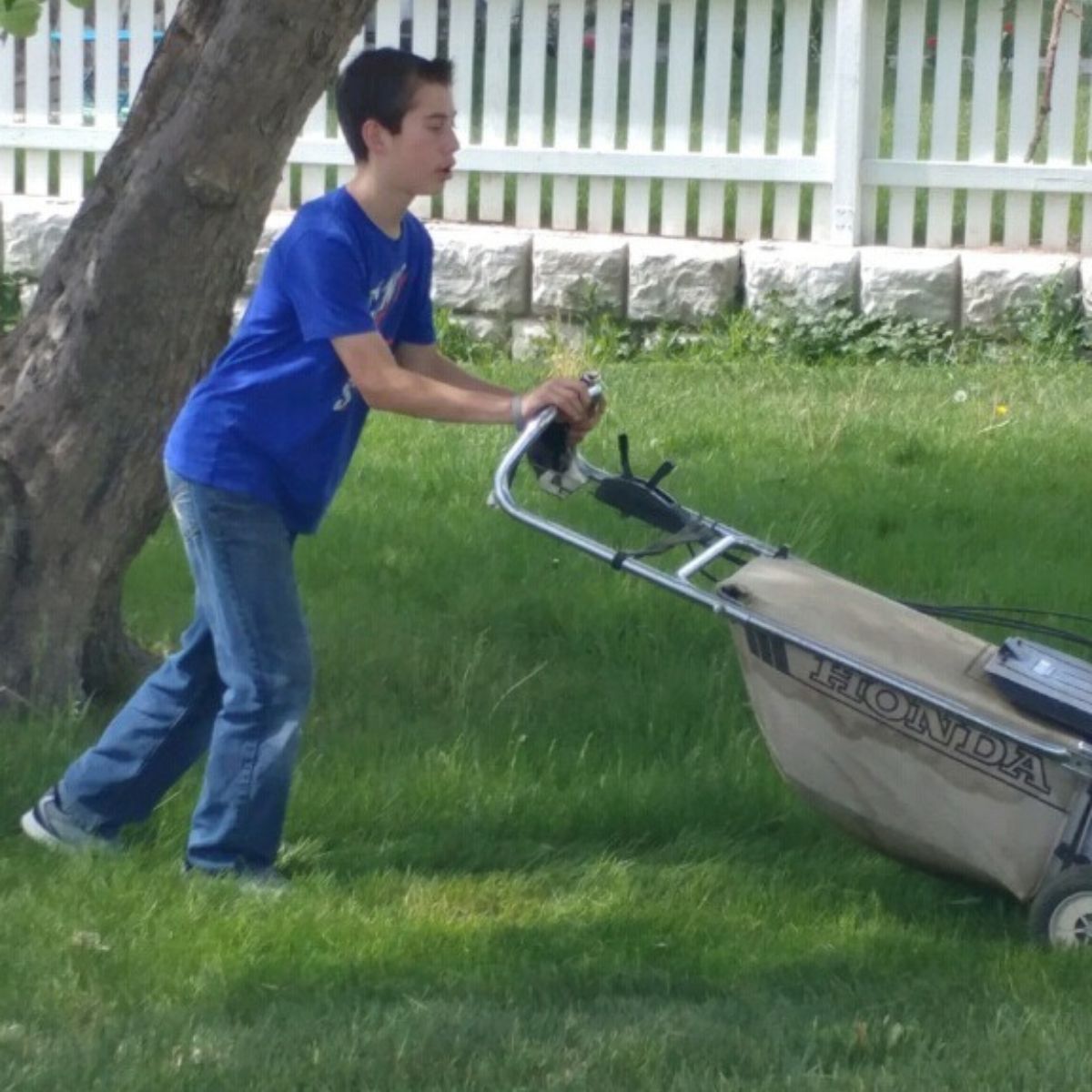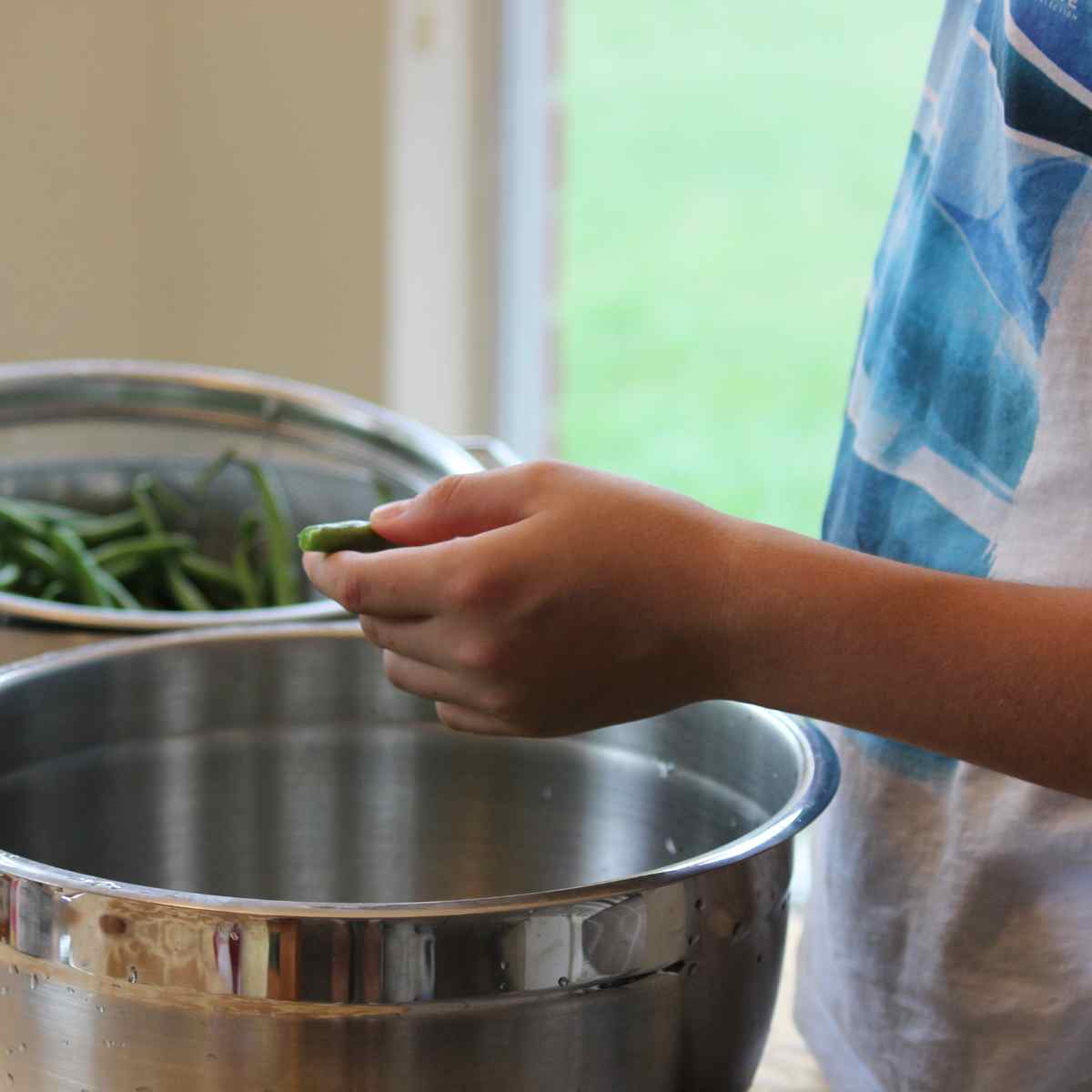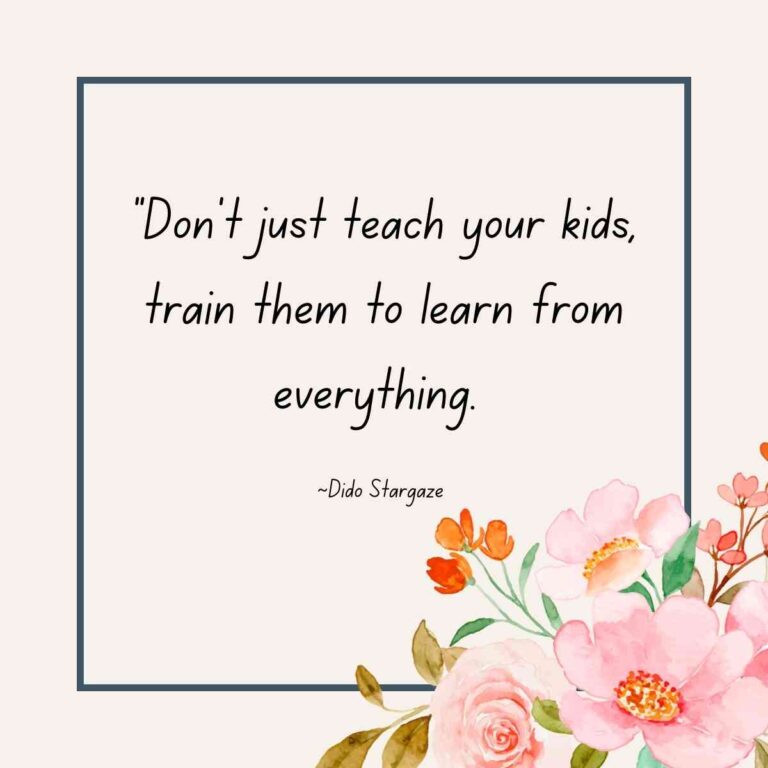Should Kids Get Paid To Do Chores? The Answer Might Surprise you!
It’s safe to say most parents agree that kids have to be taught financial literacy from a young age. If you wait until they are in high school to teach them money concepts, it might just be too late! Let’s start by diving into one of the most asked questions by parents: Should kids get paid to do chores? Why or why not?

The goal here is to make informed decisions when it comes to raising our kids.
To answer this question of whether we should pay kids to do regular household chores or not, We’re going to dive deep into the book Smart Money Smart Kids; written by Dave Ramsey and his daughter Rachel Cruze.
Our family was able to get out of debt using Dave Ramsey’s seven baby steps program so I know his advise truly works when you put it into action!
Okay, let’s dive in…
RELATED: Awesome List of Activities to Strengthen Family Relationships.
Teaching Kids Money Management Skills
It’s important for kids to learn the value of money.
The only way to learn that is by teaching them that in the real world, money is earned through hard work.
Dave Ramsey says he hates the idea of a weekly allowance for this great reason: “Handing out money and not teaching strong work habits create people who whine, who feel entitled, and who become perpetual victims.”
So with that being said, what do you think Dave’s views on paying kids to do chores is?
Let’s look at a quote from the Smart Money Smart Kids book:
“Without fail, every time I’m on the road speaking to groups, I have a parent ask me, “How can I raise my kids not to feel entitled? How can I teach them the value of a dollar?” From my experience, the basic principle of working is one of the best ways to combat the attitude of entitlement.
Once your kids understand that money comes from work, they won’t be able to spend money on a toy without considering how much work went into actually making that money. Sure, they can and should enjoy a good purchase, but working for it makes every purchase – even a toy or video game – feel like an accomplishment, not an entitlement. Encourage your kids to discover the dignity of working and earning money themselves. The worst thing you can do is become a human ATM and give your kids a five, ten, or twenty dollar bill every time they ask.”
Should Kids get paid to do chores?
The super short answer is yes. Kids should be paid to do SOME chores around the house.
There are many parents who think that kids should not get paid to do regular chores around the house. Because as a member of the family, everyone needs to help with the household workload without expecting to get money for it.
I personally agree with that, and so does Dave and Rachel…..for the most part. Their argument however, is that if you never pay your kids for doing some household tasks you will miss out on a lot of teachable moments.
In their book Smart Money Smart Kids, Dave and Rachel explain this in detail.
The idea is to give your kids weekly chores that they have to do simply because they are part of family life and good life skills to have. And then to teach them the concept of work and how earning money works in real life, give them extra chores so they can earn their own money instead of you just giving them money for no reason at all.
This will give them a sense of accomplishment and its a great way for them to learn the value of a dollar. The next time they want new toys or a treat form the super market that you are not willing to buy, they will think a little bit more about whether or not they want to spend the money they worked so hard to earn.
Paid Chores VS Unpaid Chores

Unpaid kids chores should be daily tasks that need to be done to keep themselves and the home running well.
Examples of unpaid chores could be:
- Clean their own rooms
- Make their own beds as part of everyday chores
- Clear the dinner table
- Help with the dishes
- Fold their own clothes
- Sweep the kitchen floor
- Feed and water pets
- Taking the garbage out
- Cleaning out the car
- Raking leaves or mowing the lawn
Examples of paid kids’ chores:
Paid chores are those things that go above and beyond basic chores and that require a bit more extra work.

- Babysitting a younger sibling
- Clean out the refrigerator
- Wash walls and baseboards
- Wash the windows
- Wash the car
- Sweep sidewalks and stairs to the house
- Wipe down the front door (inside and out) Any one else’s front door get super dusty?
- Clean out Kitchen cabinets
- Clean out rain gutters
How much should kids get paid for each chore?
There are two ways you can pay kids for doing chores.
You can pay an hourly rate (best for tweens or teens), or you can have a set price for each chore.
There is no hard and fast rule to dollar amounts. Consider your budget and set realistic amounts for each age group and type of chore.
And of course it goes without saying that the types of paid chores you assign young children will be completely different than those of older teens. Just like the amount of money will be different. Don’t insult your teenager by paying too little, and don’t do a disservice to your young kids by over paying them for doing simple chores. Remember we are using every chore as a valuable teachable moment.
Will you pay your kids for good behavior?
Another thing you might want to consider is whether or not you will pay your kids for good behavior.
I met my husband when we were in high school, and I remember how weird it was that his parents paid him for having good grades.
I can see how receiving monetary rewards would serve as an incentive to keep those grades up, but I sure never had any kind of reward system for good grades.
What I’m trying to say here, is that there are many different approaches to teaching your kids financial responsibility.
If grades are important to you, then paying your kids different amounts for A’s and B’s might make sense for your family; after all they have to put in work and effort for those grades!
The end goal here, is to teach kids that money comes from work. Learning that they can earn money through all kind of odd jobs is one of life lessons that will serve them well as they grow up and enter the real world.
RELATED: Fun Questions to ask your kids to get to know them better
The Ultimate Goal: Great Preparation for real life!
So as we’ve been saying throughout this entire blog post.
The end goal is to teach your kids how the real world works.
Once they start making their own money then the real work starts for YOU the parent.
Now you have to teach them how to:
- Budget their money.
- How to spend it wisely.
- How to save it.
- And how to be generous with their money…how to give.
I can’t possible cover all those things in one single article but if you’re already at that point in your parenting journey; I recommend you get the book smart Money Smart Kids by the family finance expert Dave Ramsey and his daughter Rachel Cruze.
This book goes deep into everyone of those areas and gives you great advice, so you feel confident teaching your children about money.
So what do you think? Should kids get paid to do chores or not? I’d love to hear your thoughts on the subject! Please share them with me down in the comments section.
And if you found this blog post helpful, please share with your friends and family or share over on social media.
Thanks so much!
Should Kids Get Paid To Do Chores?


Let me leave you with one last quote from the Smart Money Smart Kids Book:
“Throughout this book, we have taught you to make money-smart kid principles an ongoing, constant discussion with your children. As parents, you must strike a balance here. Don’t obsess about money with them. At the same time, don’t think your job is done because you’ve had one “money talk” with them.
One money talk won’t cut it. Instead, make the discussion continuous like you do with other things you want to become part of your children’s character. Some parents are so secretive and paranoid about money that they simply don’t discuss it. As a result, their kids grow up in homes where the parents never talk about money and never talk about sex, so the kids assume the parents have neither!
They are later shocked to find out their parents had both. This lack of communication leaves children completely unprepared to deal with these issues.”






